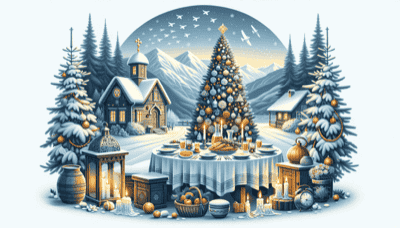We're here to help you keep count of the days to or since a date. Just click the button below and enter your chosen date to get started. Also choose the suggested days or search for a special day above #countingthedays

Date: January 7th
Background: Orthodox Christmas Day in Montenegro is celebrated by the members of the Eastern Orthodox Church according to the Julian calendar, which runs 13 days behind the Gregorian calendar used in many other parts of the world. As a country with a significant Serbian Orthodox Christian population, Montenegro observes this day as a religious and cultural event.
History: The history of Orthodox Christmas is tied to the early Christian Church and its decision to celebrate the birth of Jesus Christ. Over time, as the Western Christian Church adopted the Gregorian calendar and moved Christmas celebrations to December 25th, Eastern Orthodox Churches kept to their traditional Julian calendar.
Traditions:
Badnjak (Christmas Eve): The celebration begins on January 6th with Christmas Eve, known as "Badnji dan." Families cut down a young oak tree called "badnjak" and bring it into their homes or churches to be burned, symbolizing the warmth and light that Christ brings into the world.
Church Services: Many attend a special liturgy at church on Christmas morning. The services are filled with hymns and prayers commemorating Jesus' birth.
Family Gatherings: Christmas is a time for family reunions where people share festive meals. A typical dish served is "pečenica," which is roasted pork, along with "česnica," a special bread baked with a coin inside for good luck to whoever finds it.
Greeting: The customary greeting for Orthodox Christmas is “Hristos se rodi!” – “Christ is born!”, to which people respond with “Vaistinu se rodi!” – “Truly He is born!”
Gift-Giving: While not as commercialized as Western celebrations, some families exchange gifts on this day.
Activities: On Orthodox Christmas Day in Montenegro, people engage in various activities such as attending church services, enjoying festive meals with family, visiting friends and neighbors, singing traditional carols called "koleda," and participating in cultural events organized by local communities.